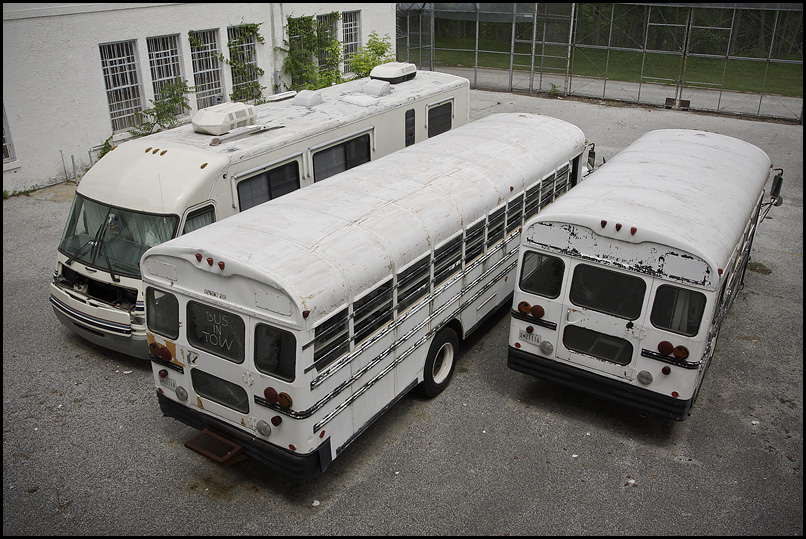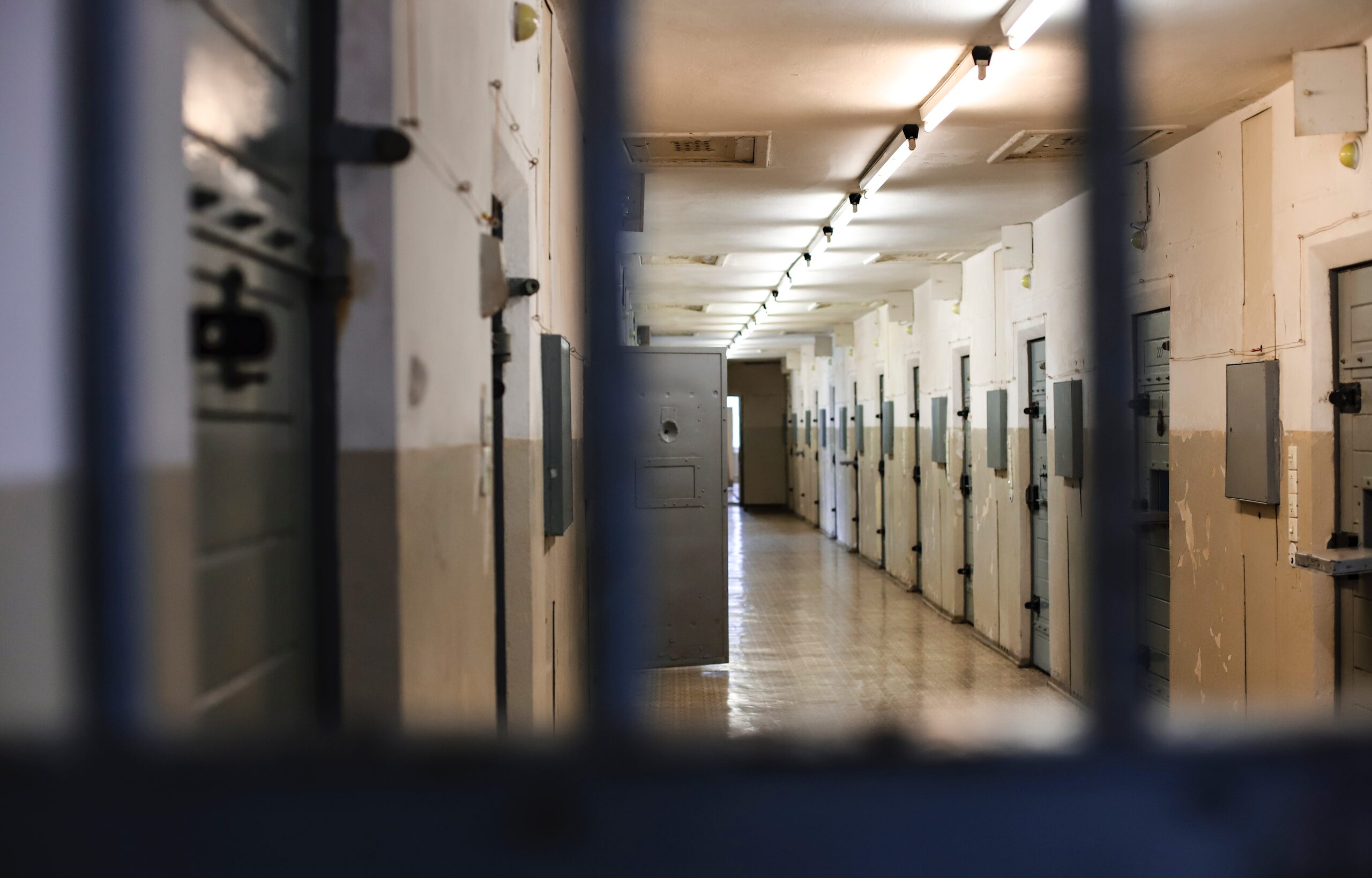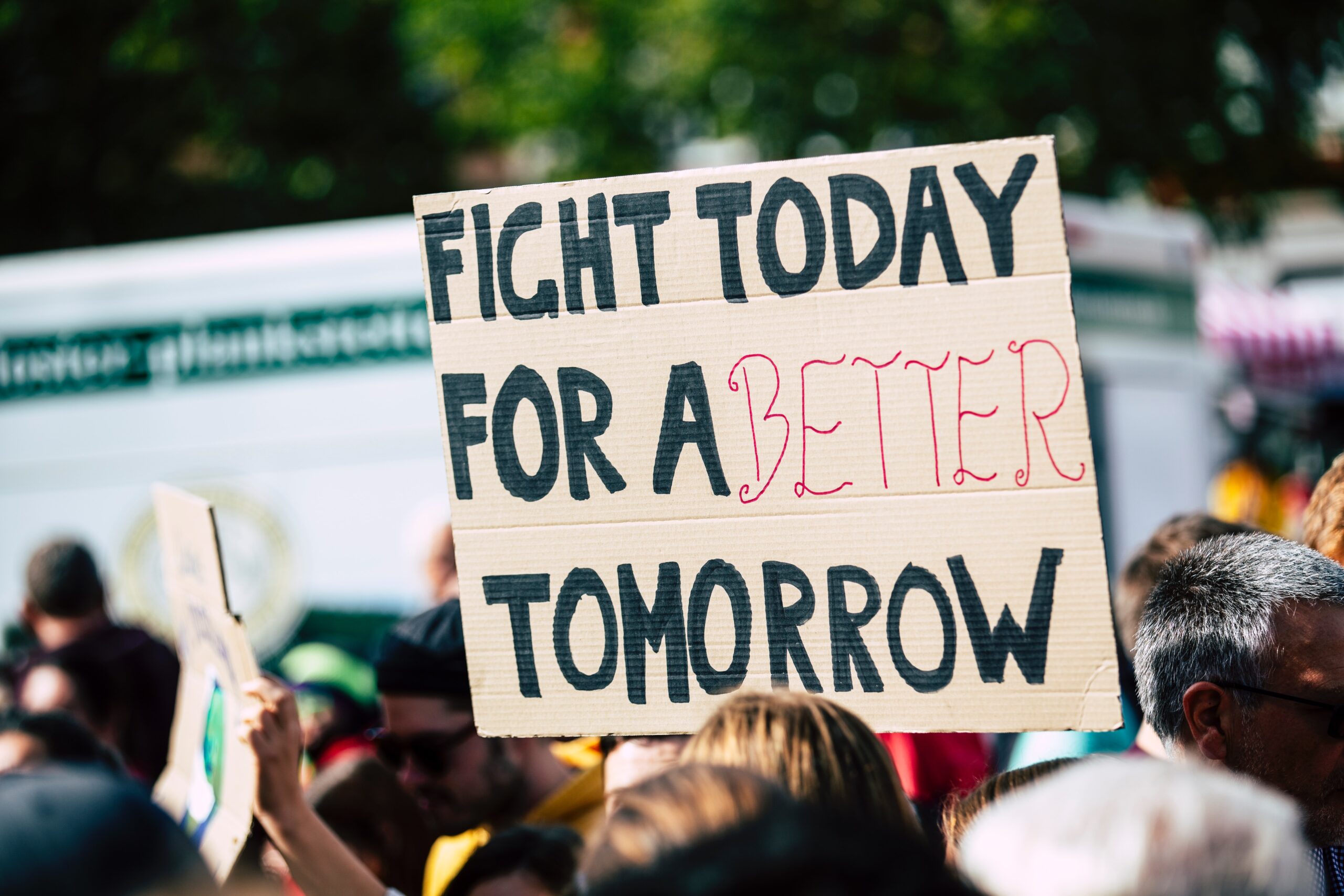
Every child has the right to an education. Photo by: Sam Balye.
Education. Empowerment. Challenge. Community. To “dream, evolve, and improve.” These “lofty” ideals should be the missions of all K-12 schools. After all, the classroom is supposed to be a safe space for kids to learn not only history, science, and math but lessons about the world and how to engage with it.
Benjamin Franklin High School, the top ranked charter high school in New Orleans, identifies its primary goal as “to prepare students of high academic achievement to be successful in life.” Taken at face value, this can be read as a promise to turn teenagers into curious scholars and motivate them to pursue higher education, then enter the workforce and become contributing members of society. If given a second glance, though, this mission statement hints at a pervasive problem within our education system. What about the students who are not of high academic achievement? What happens to them?
Consider Myles, a fourteen-year-old Black man in NOLA who received an aggravated assault charge for getting into a fistfight at school. He was sent to juvenile detention and later to adult prison on charges of robbery and drug possession. “Once he got into the juvenile justice system, we couldn’t get him out,” his aunt Charmaine remarked. They finally did get him out – at the age of forty-three.
Myles’s story is hardly unique. In a typical school year, over 800 students in New Orleans are handcuffed and shuffled from their classrooms to juvenile detention through the school-to-prison pipeline. Student resource officers – police in schools who receive little to no training for working with kids and teeangers – treat them as though they are violent adults and threats to society (this is not the case). In fact, over 80% of these students’ offenses are nonviolent; being in possession of drugs, exhibiting “disruptive” behavior (a label often ascribed to students with disabilities), and even the simple act of skipping class are all common causes of arrest.
The city’s charter schools are able to set many of their own disciplinary rules, so “infractions” can be extremely arbitrary. NOLA students have been suspended, expelled, and arrested for “trespassing” on school grounds after hours and even for violating the dress code. While some conduct might be worthy of punishment, actions like these certainly are not. Criminalizing kids and pushing them out of school is a needless and dangerous way of responding to behavior that signals a need for attention and support.

Buses parked outside a juvenile detention center. Photo by: hoodwatch.
The process of arresting and disciplining students is blatantly racialized. 70% of young people arrested in American schools are Black and/or Latinx. Here in New Orleans, 67% of students taken into custody from the hallways are Black. If not arrested on the spot, these kids are often branded as “problematic” and pushed out of the classroom altogether. Black students are suspended and expelled from school at disproportionate rates; in Louisiana, they are three times as likely to be suspended and twice as likely to be expelled as their white peers.
The juvenile justice system is broken. Over 95% of all youth arrested in New Orleans are Black, and over 80% of arrests are for nonviolent offenses. “They claim it’s for rehabilitative purposes, but they’re really just preparing you for the next level,” Myles commented on his experience. Indeed, 66% of students who get arrested do not return to school, and many of them are funnelled into adult prisons, just like he was. Black children, teenagers, and adults have much greater chances of being arrested for crimes they did not commit and receiving harsher sentences than white people who commit the same crimes. This dynamic is particularly evident in Louisiana: Black people comprise just 32% of the state’s total population, but they account for 66% of its incarcerated population. Clearly, both education and criminal justice are conspiring to perpetuate systemic racism in the Pelican State.
In the American education system, no child is supposed to be left behind. In the Crescent City and across the country, though, millions of BIPOC students are being left behind bars and deemed unworthy of the safe spaces that schools promise. This has extremely detrimental effects on these youth, who report feeling misunderstood and worthless at school. “I wish more teachers and principals would see things from the child’s point of view. And have more kid in them,” one expelled student yearned. Many also report feeling unsafe. “I wish I could take all the security guards out of the schools. They don’t know how kids think,” one lamented. Another told a harrowing personal story: “The security guard was punching me in the stomach….I felt like somebody big was trying to kill me.” The constant harassment doesn’t end when kids are sent to detention and prison. There, they are consigned to extremely poor living conditions, isolated from their loved ones and the rest of society and left vulnerable to violence.

This is no place for a child to learn. Photo by: Matthew Ansley.
The Juvenile Justice Intervention Center (JJIC) in Orleans Parish has become notorious for its understaffing, overcrowding, and lack of mental health services for detained youth, all of which have resulted in multiple suicide attempts. While the Cantrell administration has prioritized reform, expanding the capacity of the JJIC as well as improving staff training and mental health competency, more positive changes are necessary. If left untouched, facilities such as these represent a more modern version of segregation, pushing BIPOC to the margins of society and locking them away. They are proof that white people’s habit of inflicting physical, mental, and emotional harm on Black bodies did not die in the era of Jim Crow.
The disproportionate arrest and detention of BIPOC students fuels a racist belief that New Orleans youth are violent and uncontrollable. This stereotype is not only harmful, but it is patently false; youth crime rates have been on the decline for several consecutive years. 2019 saw a 30% drop in violent arrests and a 20% drop in nonviolent arrests of young people. Any messaging to the contrary emphasizes the role of the police in addressing any and all academic disciplinary infractions, when other forms of intra-school intervention or counseling services can be used as deescalation tactics.
NOLA schools are failing to “let kids be kids.” This has become the rallying cry of one prominent nonprofit working to disrupt the school-to-prison pipeline here in the city and throughout the state. Families and Friends of Louisiana’s Incarcerated Children (FFLIC) uses grassroots, community-based activism to invest in students of color and put them on the path to future educational and professional success. Its leadership development programs, such as the Black Man Rising Movement and the Black Girls Rising Movement, provide Black students with the resources they need to become confident and capable adults. It focuses on mitigating poverty, meeting mental health needs, and providing kids with strong support systems and role models. The organization and its affiliates have also marched and lobbied to keep kids out of detention and prison in Louisiana, making significant strides toward a better juvenile justice system.

A protester shows hope for the future. Photo by: Markus Spiske.
FFLIC is special in that it creatively engages young people and their loved ones, many of whom are new to advocacy. Myles’s aunt, Charmaine, got involved with the organization so that other students would not experience the horrors that her nephews did. Charmaine’s other nephew, Darius, spent eight years in detention, only to be shot and killed upon his release at the age of twenty. She is now committed to fighting for a better future for Louisiana’s children, one in which Black children are respected and empowered.
As it stands, our education system is only a haven for white, able kids. Students like Myles and Darius deserve the same rights: to be protected and nurtured as they learn and grow. FFLIC’s leaders hope that in time, their organization’s interventions will help even the playing field, making schools and communities safer and more just.
References:
“2021 Best Charter High Schools in the New Orleans Area.” Niche, 2020, www.niche.com/k12/search/best-charter-high-schools/m/new-orleans-metro-area/.
“About Ben Franklin High School.” Ben Franklin High, www.bfhsla.org/mission-and-history.
“About.” Lusher Charter School, www.lusherschool.org/about/.
“Access Denied: New Orleans Students and Parents Identify Barriers to Public Education.” Southern Poverty Law Center, 1 Dec. 2010, www.splcenter.org/20101130/access-denied-new-orleans-students-and-parents-identify-barriers-public-education.
AlterNet. “New Orleans Charter Schools Are Punishing Students for Being Poor.” Alternet.org, 18 July 2017, www.alternet.org/2017/07/new-orleans-charters-punish-students/.
The Annie E. Casey Foundation. “Closing the School-to-Prison Pipeline in New Orleans.” The Annie E. Casey Foundation, 11 Dec. 2014, www.aecf.org/blog/new-orleans-programs-work-toward-juvenile-justice-reform/.
Barrett, Nathan, et al. “What Are the Sources of School Discipline Disparities By Student Race and Family Income?” Education Research Alliance for New Orleans, 20 Nov. 2017, educationresearchalliancenola.org/files/publications/111417-Barrett-McEachin-Mills-Valant-What-Are-the-Sources-of-School-Discipline-Disparities-by-Student-Race-and-Family-Income.pdf.
Berko, Nketiah. “Overly Punitive Juvenile Justice System Fails New Orleans Children.” The Tulane Hullabaloo, 5 Sept. 2019, tulanehullabaloo.com/48265/views/with-an-overly-punitive-juvenile-justice-system-new-orleans-is-failing-its-children/.
Chen, Grace. “School-to-Prison Pipeline Persists Despite Local, State and National Efforts.” Public School Review, 20 June 2014, www.publicschoolreview.com/blog/school-to-prison-pipeline-persists-despite-local-state-and-national-efforts.
Coates, Ta-Nehisi. Between the World and Me. Random House Publishing Group, 2017.
Families and Friends of Louisiana’s Incarcerated Children (FFLIC) & National Economic and Social Rights Initiative (NESRI). “Pushed Out: Harsh Discipline in Louisiana Schools Denies the Right to Education.” Dignity in Schools, Spring 2010, https://dignityinschools.org/resources/pushed-out-harsh-discipline-in-louisiana-schools-denies-the-right-to-education-2010-3/.
Harden, Kari Dequine. “Dealing With the School-to-Prison Pipeline.” The Louisiana Weekly, 27 Apr. 2015, www.louisianaweekly.com/dealing-with-the-school-to-prison-pipeline/.
“History.” Families and Friends of Louisiana’s Incarcerated Children, Families and Friends of Louisiana’s Incarcerated Children, 2020, www.fflic.org/about-us/history.
“Home.” Families and Friends of Louisiana’s Incarcerated Children, Families and Friends of Louisiana’s Incarcerated Children, 2020, www.fflic.org/.
Initiative, Prison Policy. “Louisiana Profile.” Louisiana Profile | Prison Policy Initiative, 2020, www.prisonpolicy.org/profiles/LA.html.
Kevin Litten, NOLA.com | The Times-Picayune. “New Orleans Juvenile Charges down, Car Burglaries Increase.” NOLA.com, 6 June 2019, www.nola.com/news/article_c1d5d8ff-f08a-512d-9c2d-dc15720d44f5.html.
“LCCR : Juvenile Justice Data Dashboard.” Louisiana Center for Children’s Rights, www.laccr.org/dashboard-2/.
“Let Kids Be Kids.” Families and Friends of Louisiana’s Incarcerated Children, www.fflic.org/support-let-kids-be-kids.
Mayor – News – July 2019 – Youth Study Center Announces Name Change and Permanent Director – City of New Orleans, 19 July 2019, nola.gov/mayor/news/july-2019/youth-study-center-announces-name-change-and-permanent-director/.
Moskowitz, Dani. “This Nonprofit Is Dismantling Louisiana’s School-to-Prison Pipeline.” The Renewal Project, 1 Apr. 2020, www.therenewalproject.com/this-nonprofit-is-dismantling-louisianas-school-to-prison-pipeline/
Times-Picayune, NOLA.com | The. “New Orleans Juvenile Jail Plagued by Violence, Staffing Woes.” NOLA.com, 23 Aug. 2018, www.nola.com/news/crime_police/article_7a9e8479-94a0-54e6-a06c-239c53ac470a.html.
Urban League of Louisiana. “Advancing Educational Equity in New Orleans Public Schools: An Urban League Report on Equity in Unification.” Urban League of Louisiana, Mar. 2019, urbanleaguela.org/wp-content/uploads/2019/03/EQUITY-REPORT-FINAL-VERSION-V-1.2.pdf.
Whirty, Ryan. “Lack of Resources Plays Role in Funneling Students with Disabilities through School-to-Prison Pipeline.” Louisianaweekly.com, 3 June 2019, www.louisianaweekly.com/lack-of-resources-plays-role-in-funneling-students-with-disabilities-through-school-to-prison-pipeline/.
 NOLAbeings Multimedia artist Claire Bangser created NOLAbeings as a portrait-based story project that marries...
NOLAbeings Multimedia artist Claire Bangser created NOLAbeings as a portrait-based story project that marries...  Voodoo in New Orleans: Reviving history: New Orleans fortune telling This article takes a deep dive into the history of Voodoo in New Orleans, its hybridization with Catholicism, and its present-day place in the city's culture. The author visits fortune-tellers in the French Quarter, using their guidance as a tool for introspection rather than a deterministic predictor of the future. Through her experiences in New Orleans, the author feels a mystical connection to both the past and the future.
Voodoo in New Orleans: Reviving history: New Orleans fortune telling This article takes a deep dive into the history of Voodoo in New Orleans, its hybridization with Catholicism, and its present-day place in the city's culture. The author visits fortune-tellers in the French Quarter, using their guidance as a tool for introspection rather than a deterministic predictor of the future. Through her experiences in New Orleans, the author feels a mystical connection to both the past and the future. 